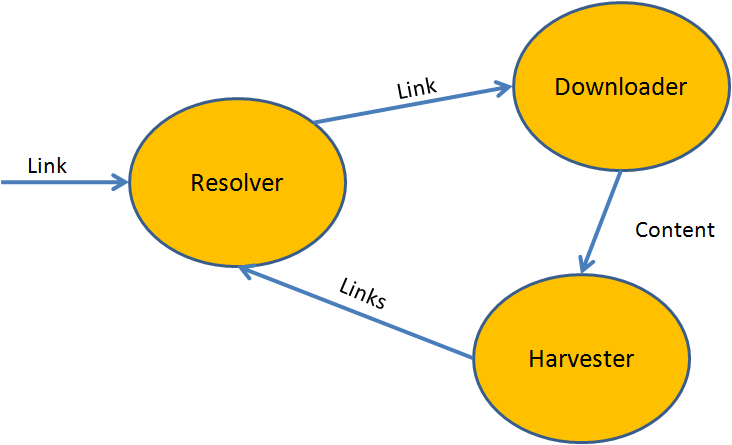Distributed Applications in C#, Intro to Aktores
Actor Model in C#
Created by @ajlopez
https://github.com/ajlopez/Talks/AktoresIntro
Using reveal.js
Agenda
- Distributed Applications
- Actor Model
- Aktores in C#
Sources
Distributed Applications
Distributed Computing is the New Normal
- You already have a distributed system
- Mobile
- NoSQL Databases
- SQL Replications
- Cloud
- REST Services
Needs
- Elasticity (beyond a single node)
- Availability (resilience if one node fails)
Programming Distributed Computing Systems

Programming Distributed Computing Systems
- Author: Carlos Varela http://www.cs.rpi.edu/~cvarela/
- Part One: Theory
- Part Two: Practice
Motivation
- Moore's Law
- 1971: 2 300 transistors per chip
- 2011: 2 600 000 000 transistors per chip
- Network
- ARPANET 1968: 50 000 bits per second
- US-Japan backbone 2011: 500 000 000 000 bits per second
- Storage
- First hard drive 1956: 4 400 000 bytes
- Hard drive 2011: 4 000 000 000 000 bytes
The Future
"At the same rate of growth, by 2031, we may see a thousandfold further improvement in hardware, resulting in 1,000 plus-core processors in mobile devices, laptops, and desktops, 100-terabit-per-second-plus network backbones, and hard drives storing petabytes of data. The growing number of transistors in emerging multicore architectures can only be translated into practical software applications’ performance if software developers understand how to program concurrent systems effectively."
Concurrency vs Parallelism
Concurrencty: n threads are making progress
Parallelism: n threads are executing SIMULTANEOSLY
Distributed Computing
"Internet computing, web computing, grid computing, and cloud computing are all forms of distributed computing"
"One significant advantage of distributed computation is the potential scalability afforded by applications"
Actor Model
Actor Model
- Formalized by Carl Hewitt (1973)
- Refined by Gul Agha (mid 80s)
- First major adoption: Ericsson (mid 80s)
- Invented Erlang (open sourced in 90s)
- Built distributed, concurrent, fault-tolerant telcom system 99.99....% uptime
Actor
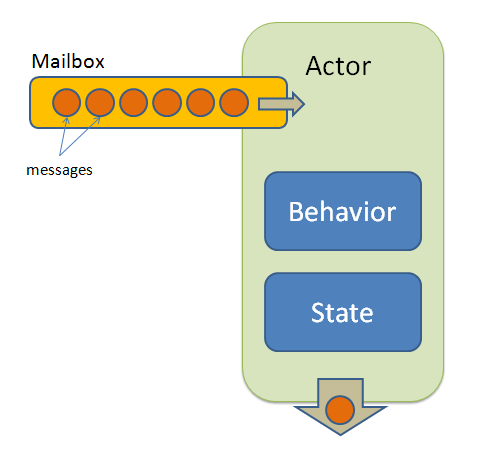
Actor
- Lightweight Object
- No Shared State
- Messages in Mailbox
- They are processed in order
- Only one message at a time
Actors and Messaging
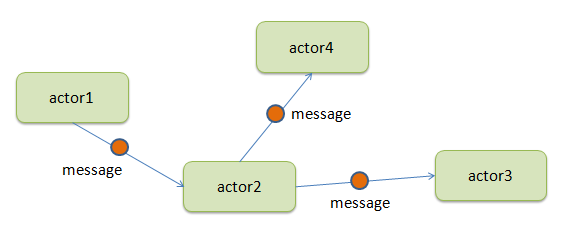
Supervisor and Workers
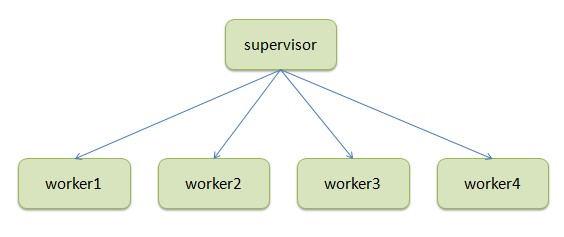
Akka
http://akka.io/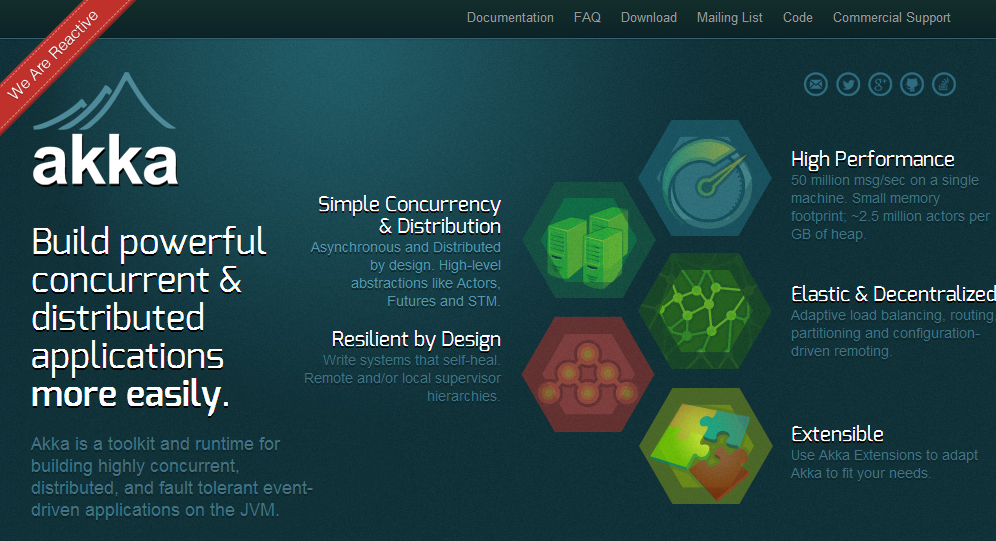
Akka
- Founded by Jonas Boner (@jboner), now part of Typesafe stack
- Actor implementation on Java Virtual Machine
- Java API
- Scala API
- Local and Remote Actors
- Cluster
- Actor Persistence
- Supervision
Aktores
Actor Model in C#
https://github.com/ajlopez/Aktores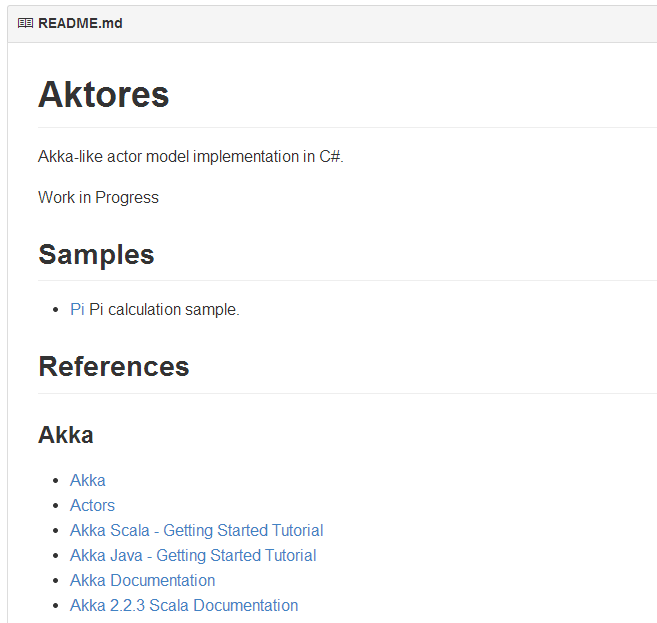
Actor
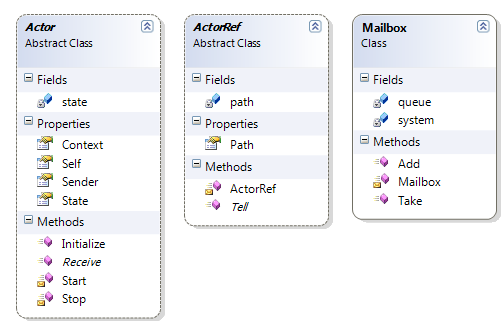

Actor System
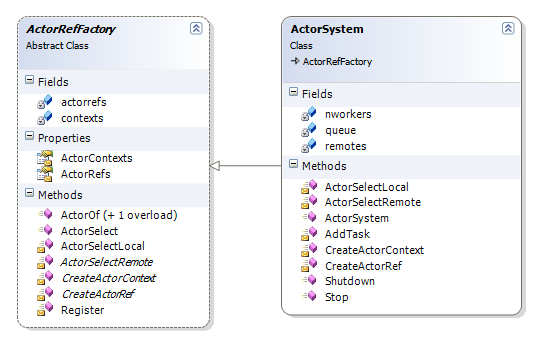

Actor Context
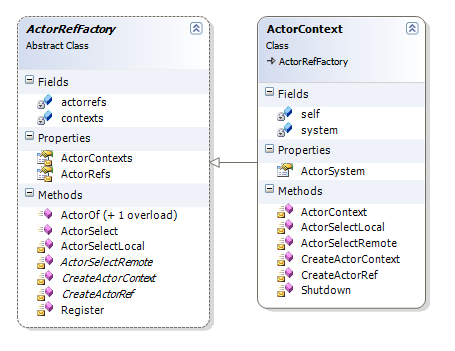

Example: Web Crawler
